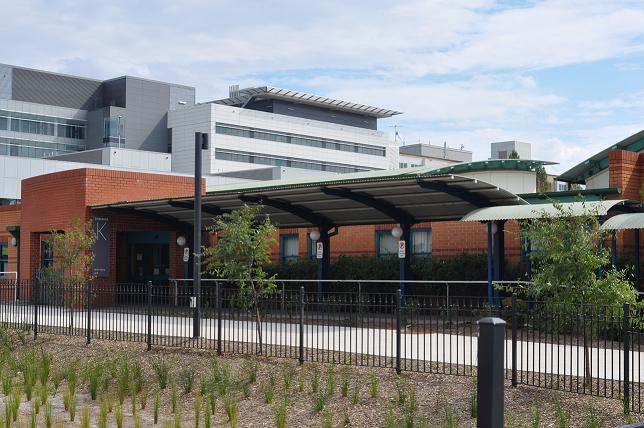Liverpool Brain Injury Rehabilitation Unit (LBIRU) History of the UnitThe Lidcombe Hospital Head Injury Unit opened in 1976 as the first unit in Australia to provide specialised rehabilitation for people with traumatic brain injury. In 1995, the unit relocated to Liverpool Hospital. The Unit has established a national and international reputation for outstanding research in the rehabilitation of people with traumatic brain injury and was a key resource in the consultations that formed the basis for the New South Wales (NSW) Brain Injury Rehabilitation Program. Recent Service Statistics
|
||||||||||||||||||||||
| Program |
Number of New Admissions |
|
| |
2012 N |
2013 N |
| Inpatient | 54 | 58 |
| Community | 156 | 130 |
| Transitional Living Unit | 14 | 15 |
| Community Living Unit | 147 | 145 |
| Total | 371 | 348 |
Mission Statement
-
To provide assessment, rehabilitation and a community support service for the present and future needs of adults with traumatic brain injuries and their families.
-
To establish and develop specific rehabilitation programs to enable maximum social and vocational reintegration of people with traumatic brain injury into the community.
-
To provide a goal directed individual management system for the client and to minimise dependency and maximise function.
-
To advocate for, initiate and support the development of appropriate policies and services in the government and community sectors to meet the long-term needs of people with traumatic brain injury and their families.
-
To undertake research and education about traumatic brain injury.
-
To provide consultation and support to other service providers in the area of traumatic brain injury management.
Service Area and Referrals
The LBIRU is funded by the NSW State Health Department. It provides rehabilitation services for people with traumatic brain injury living in South and South Western Sydney Metropolitan areas. The region has the highest concentration of people from non English speaking background (NESB) in the state of NSW.
The LBIRU Community Team has an active caseload of approximately 650 clients. They consist of referrals from LBIRU inpatients when they are discharged to community and referrals post injury from health facilities, community agencies, medical practitioners, family members and self-referrals.
The LBIRU also has supra-regional responsibility and accepts referrals from rural brain injury services located in Southern and South Western New South Wales. Clients are referred from these areas for specialist inpatient rehabilitation and then referred back to their local brain injury service.
Service Philosophy
The LBIRU service philosophy can be characterised as a social rehabilitation approach. This approach is underpinned by the following principles as:
- Equity of access to rehabilitation
Individuals are unselected, with minimal referral criteria. There are no functional, cognitive, behavioural or mood-related criteria.
- Needs-driven rehabilitation
Goals of social rehabilitation are not dependent on initial injury severity, but rather the nature and degree of disablement. There are no time limits provided on the length of time support is provided and programs are provided in a flexible manner.
- Goal-based rehabilitation
Goals of social rehabilitation are multidimensional, representing the sum of client-expressed need and third- party identified needs.
- Continuum of care
Coordinated transition is provided between the relevant components of the continuum of care from acute inpatient rehabilitation to long-term support.
- Multidisciplinary approach
Rehabilitation is approached as an holistic endeavour informed by biomedical, neuropsychological, neuro- behavioural and community participation paradigms.
- An enablement approach
People are encouraged to reclaim decision-making, responsibility and control over their own lives, also known as psychological independence.
- Contextual-based approach
Rehabilitation where possible is conducted within the environment that the person lives.
- Participation-based approach
Outcomes represent the product of the interaction between the individual and their social, physical, service, attitudinal and political environment.
- Family-centred approach
Families are viewed as partners in the rehabilitation process and typically the greatest resource available to the person.
- Evidence-based approach
Rehabilitation is provided with reference to the international best-practice, where possible using evidence-based intervention.
Accreditation
Accreditation is with the Australian Council on Healthcare Standards (ACHS). The ACHS is an independent, not for profit organisation whose mission is to promote continuing improvement in the quality of care delivered by health care organisations. For more information please visit the website www.achs.org.au .


